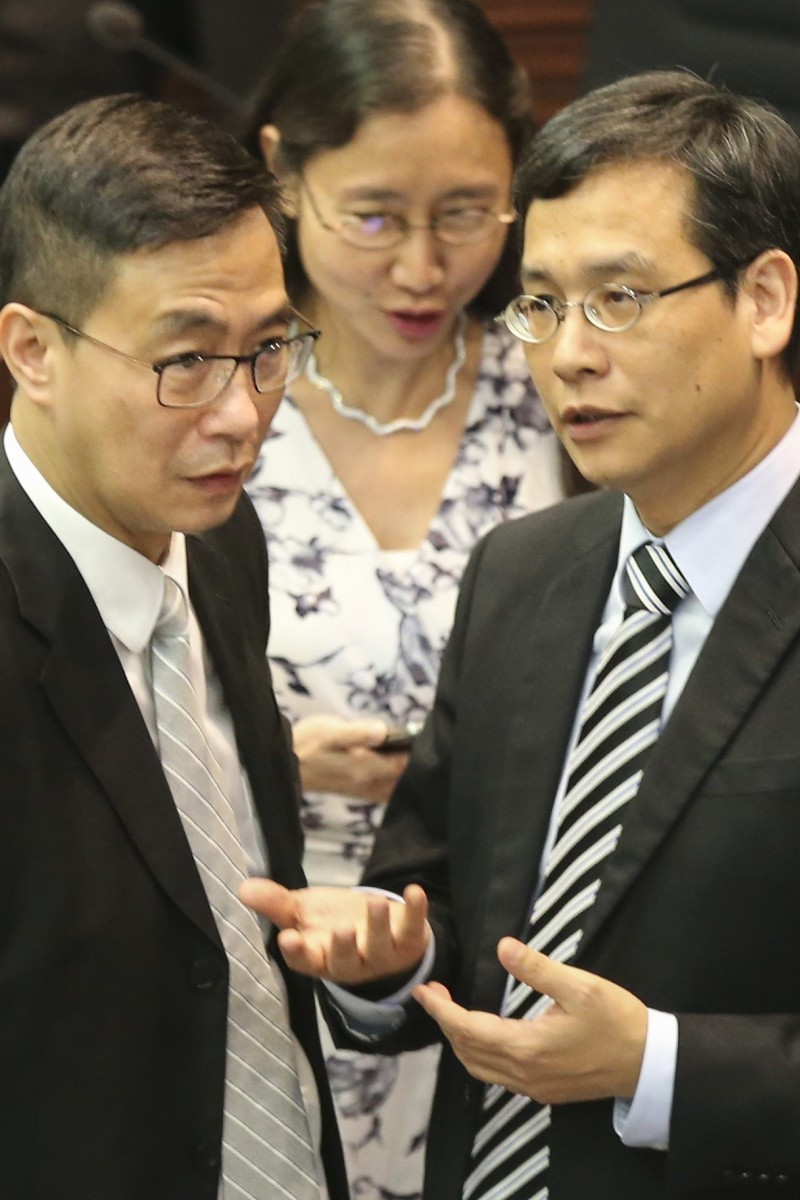
Face Off: is the subsidy for tertiary courses a good idea?
Each week, two of our readers debate a hot topic in a parliamentary-style debate that doesn’t necessarily reflect their personal viewpoint. This week’s topic is ...
 The new government is putting money towards tertiary education, but is it enough? Pictured are Secretary for Education, Kevin Yeung Yun-hung (left) and Education sector Lawmaker Ip Kin-yuen (right)
The new government is putting money towards tertiary education, but is it enough? Pictured are Secretary for Education, Kevin Yeung Yun-hung (left) and Education sector Lawmaker Ip Kin-yuen (right)Shun Long-hin, 15 ,King George V School
I believe the annual HK$30,000 subsidy proposed by Chief Executive Carrie Lam Cheng Yuet-ngor is a good way to help students pursue higher education courses.
The subsidy gives students who can’t get into local universities an opportunity to realise their dreams. Some are very talented and know what they want to become when they graduate. And pursuing a career as an engineer, accountant, doctor, architect or lawyer is undoubtedly very expensive.
Subsidising the costs of tertiary education ensures a teenager’s future is not a continuation of their secondary school lives – studying and being dependent on their parents. It would also be greater motivation for students to be more independent, work hard, and learn something new about themselves.
Most teenagers need this financial assistance to fulfil their potential. There needs to be a change in the mindset of Hongkongers so that we encourage people to follow their passions and be able to afford to fail.
The government spent around HK$640 million to celebrate the 20th anniversary of Hong Kong’s handover to China. Surely, the money allocated to such projects can instead be spent on subsidies for students.
The HK$30,000 subsidy is a step in the right direction. And it’s great to see the government investing more in Hong Kong’s students.
Rachel Wong, 18 ,Hong Kong University of Science and Technology
I believe that providing subsidies does more harm than good for students in Hong Kong. Regardless of the amount of the subsidy it’s the allocation of resources that the government should be focusing on.
The HK$30,000 annual subsidy for self-financing university programmes does not tackle the main problem.
Before the implementation of the new scheme, the competition between public and private institutions was fair, because it was based on the quality of their programmes. Therefore, institutions tried their best to improve the quality of their teaching. However, the HK$30,000 subsidy only targets local, self-financing programmes which are not offered by the eight government-funded tertiary institutions.
Although the subsidy scheme can reduce the financial burden on students studying self-financed degrees, which can cost up to HK$70,000 per year, students are more likely to choose the subsidised programmes according to their financial needs, regardless of their interests and skills.
And as some of the self-financed degrees receive funding from the government, this reduces the incentive for educators to design high-quality programmes for students.
In my opinion, increasing the quota of tertiary degree programmes would be much more beneficial than providing funding for students.